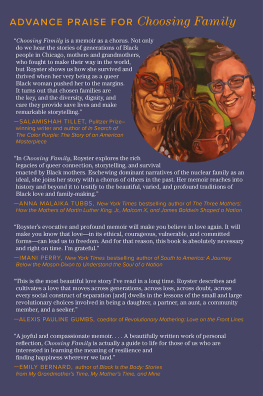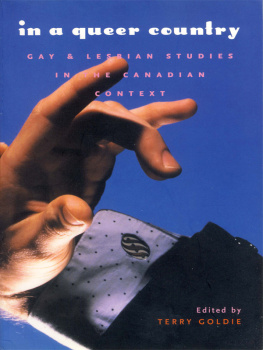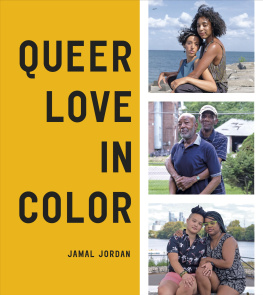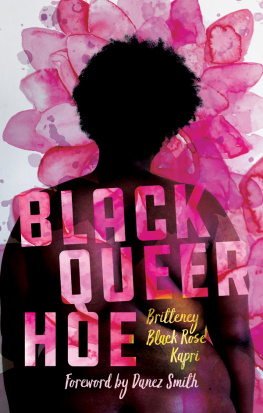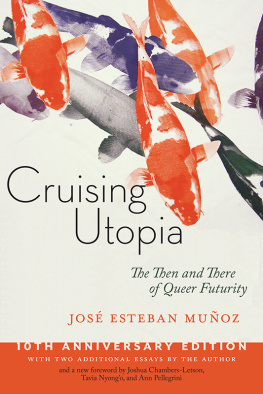Contents
Guide
Pagebreaks of the print version
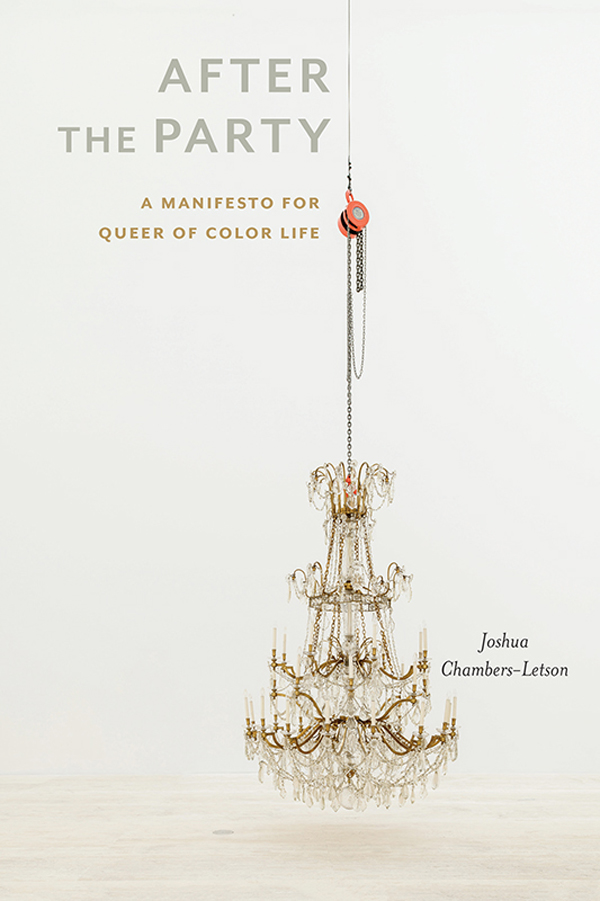
AFTER THE PARTY
SEXUAL CULTURES
General Editors: Ann Pellegrini, Tavia Nyongo, and Joshua Chambers-Letson
Founding Editors: Jos Esteban Muoz and Ann Pellegrini
Titles in the series include:
Times Square Red, Times Square Blue
Samuel R. Delany
Queer Globalizations: Citizenship and the Afterlife of Colonialism
Edited by Arnaldo Cruz Malav and Martin F. Manalansan IV
Queer Latinidad: Identity Practices, Discursive Spaces
Juana Mara Rodrguez
Love the Sin: Sexual Regulation and the Limits of Religious Tolerance
Janet R. Jakobsen and Ann Pellegrini
Boricua Pop: Puerto Ricans and the Latinization of American Culture
Frances Ngron-Muntaner
Manning the Race: Reforming Black Men in the Jim Crow Era
Marlon Ross
In a Queer Time and Place: Transgender Bodies, Subcultural Lives
J. Jack Halberstam
Why I Hate Abercrombie and Fitch: Essays on Race and Sexuality
Dwight A. McBride
God Hates Fags: The Rhetorics of Religious Violence
Michael Cobb
Once You Go Black: Choice, Desire, and the Black American Intellectual
Robert Reid-Pharr
The Latino Body: Crisis Identities in American Literary and Cultural Memory
Lzaro Lima
Arranging Grief: Sacred Time and the Body in Nineteenth-Century America
Dana Luciano
Cruising Utopia: The Then and There of Queer Futurity
Jos Esteban Muoz
Another Country: Queer Anti-Urbanism
Scott Herring
Extravagant Abjection: Blackness, Power, and Sexuality in the African American Literary Imagination
Darieck Scott
Relocations: Queer Suburban Imaginaries
Karen Tongson
Beyond the Nation: Diasporic Filipino Literature and Queer Reading
Martin Joseph Ponce
Single: Arguments for the Uncoupled
Michael Cobb
Brown Boys and Rice Queens: Spellbinding Performance in the Asias
Eng-Beng Lim
Transforming Citizenships: Transgender Articulations of the Law
Isaac West
The Delectable Negro: Human Consumption and Homoeroticism within US Slave Culture
Vincent Woodard, Edited by Justin A. Joyce and Dwight A. McBride
Sexual Futures, Queer Gestures and Other Latina Longings
Juana Mara Rodrguez
Sensational Flesh: Race, Power, and Masochism
Amber Jamilla Musser
The Exquisite Corpse of Asian America: Biopolitics, Biosociality, and Posthuman Ecologies
Rachel C. Lee
Not Gay: Sex between Straight White Men
Jane Ward
Embodied Avatars: Genealogies of Black Feminist Art and Performance
Uri McMillan
A Taste for Brown Bodies: Gay Modernity and Cosmopolitan Desire
Hiram Prez
Wedlocked: The Perils of Marriage Equality
Katherine Franke
Archives of Flesh: African America, Spain, and Post-Humanist Critique
Robert F. Reid-Pharr
Black Performance on the Outskirts of the Left: A History of the Impossible
Malik Gaines
The Life and Death of Latisha King: A Critical Phenomenology of Transphobia
Gayle Salamon
Queer Nuns: Religion, Activism, and Serious Parody
Melissa M. Wilcox
After the Party: A Manifesto for Queer of Color Life
Joshua Chambers-Letson
For a complete list of books in the series, see www.nyupress.org
After the Party
A Manifesto for Queer of Color Life
Joshua Chambers-Letson

NEW YORK UNIVERSITY PRESS
New York
NEW YORK UNIVERSITY PRESS
New York
www.nyupress.org
2018 by New York University
All rights reserved
Sections of first appeared in Women & Performance: A Journal of Feminist Theory , special issue on Living Labor: Marxism and Performance, vol. 26, nos. 23 (2016), edited by Aliza Shvarts and Joshua Lubin-Levy. Other sections also appeared in TDR: The Drama Review , special issue on Reproduction and Performance, edited by Rebecca Schneider. Vol. 62, no. 1, 2018. A subvention to support publication of After the Party was generously provided by Northwestern Universitys Alice Kaplan Institute for the Humanities.
References to Internet websites (URLs) were accurate at the time of writing. Neither the author nor New York University Press is responsible for URLs that may have expired or changed since the manuscript was prepared.
Library of Congress Cataloging-in-Publication Data
Names: Chambers-Letson, Joshua Takano, author.
Title: After the party : a manifesto for queer of color life / Joshua Chambers-Letson.
Description: New York : New York University Press, 2018. | Includes bibliographical references and index.
Identifiers: LCCN 2017055001 | ISBN 978-1-4798-9017-0 (cl : alk. paper) | ISBN 978-1-4798-3277-4 (pb : alk. paper)
Subjects: LCSH : Queer theory. | Performance art. | MinoritiesSocial conditions.
Classification: LCC HQ 76.25 . C 425 2018 | DDC 306.7601dc23
LC record available at https://lccn.loc.gov/2017055001
New York University Press books are printed on acid-free paper, and their binding materials are chosen for strength and durability. We strive to use environmentally responsible suppliers and materials to the greatest extent possible in publishing our books.
Manufactured in the United States of America
10 9 8 7 6 5 4 3 2 1
Also available as an ebook
for Jos
CONTENTS
PREFACE
The Manifesto of a Communist Party
The weekend after your death, everyone converges at your apartment. I get the call, but wait a day to catch my bearings before catching a flight from Chicago to New York. A cab through the Village to your building where your doorman doesnt stop us and we walk right in. When the elevator hits your floor, the familiar sound of a party pouring through the opening doors and into the empty space beside us where you used to be. I dont know why it surprised me that it would be a party. Even though, or maybe because it belonged to your employer, your apartment was our partys headquarters. It was something you stole back to give to those who didnt have a home. Now, in the wake of your death, every room is full of people who are full with the loss of you. Someone puts a drink in my hand. This is just the first of an endless string of parties.
Our party was the formation of a new communist party. The party: an organic entity, a living, breathing being, a gathering together of the multiple in the one, an obscure order, a whole which is not one, a many that is singular, a kind of provisional we at difference with itself from the inside out. The party, writes Fred Moten, could be called the house party but dont let that mislead you into thinking that house implies ownership; this house party is of and for the dispossessed, the ones who disavow possession, the ones who, in having been possessed of the spirit of dispossession, disrupt themselves.
Our parties go on for days, for years. They would begin around ten a.m., when the hangover was starting to wear off and wed roll from one gathering to the next: cocktails, a memorial, breakfast with drinks, lunch with drinks, a family dinner, an impromptu gathering at someones house, a joint on the balcony, a talk in the hallway. Repeat. After your first memorial, we pick up drinks to take to a friends apartment and converge with an endless flood of smiling faces smiling sometimes. They verge, fall, pull toward and apart from each other. All the wars are briefly suspended and for a few flickering moments, as Wallace Stevens might have said, We collect ourselves, out of all the indifferences, into one thing. So rather than the coercive we that dominated the communist parties of historical communism, we became a we in difference from itself, gathered together in the wake of your death.


